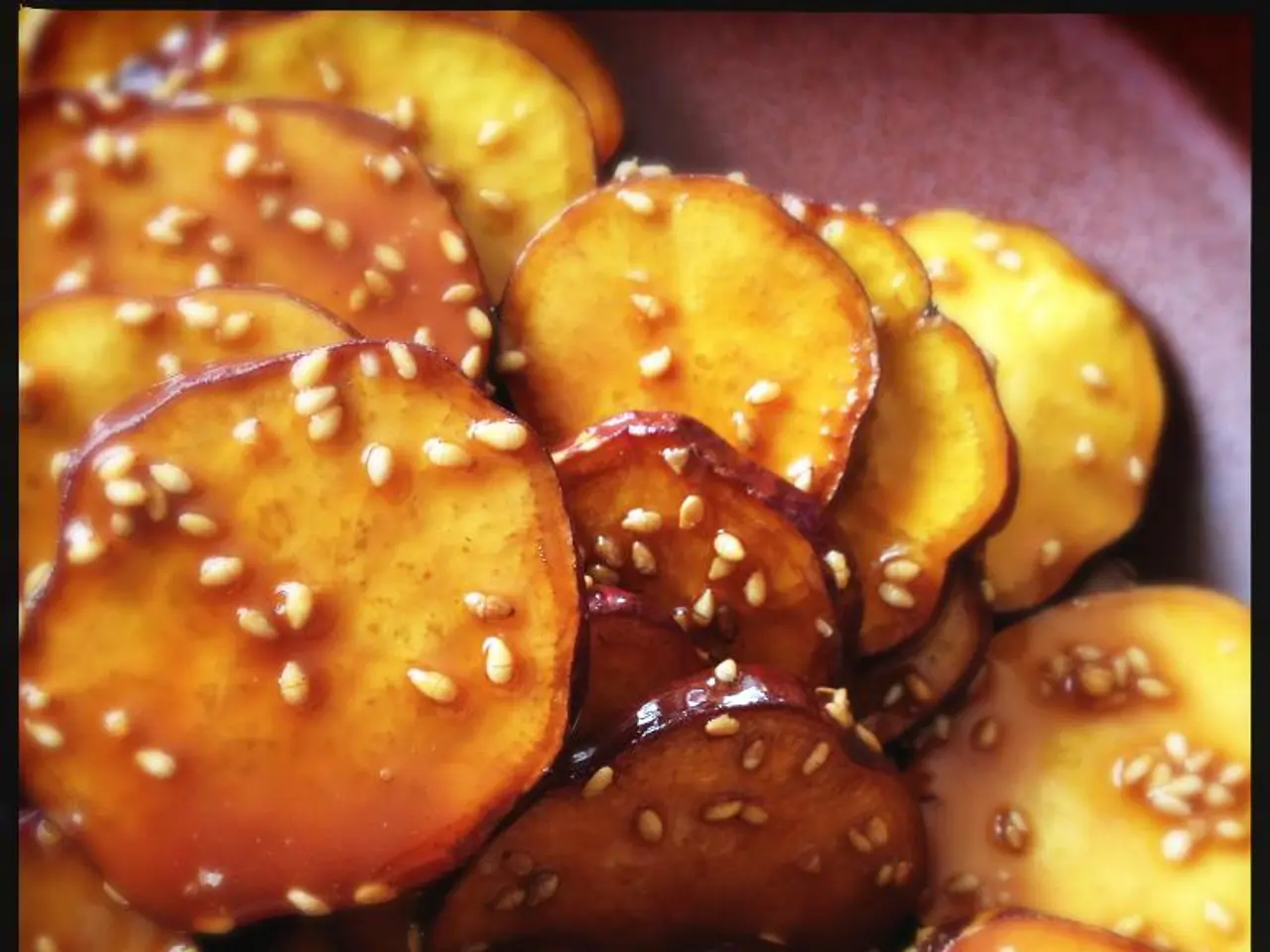Exploring Family Roots Through Culinary Expressions: A Scribe Infuses Heritage with Food Recipes
Michael Twitty's Identity Cooking Blends Cultures Through Food
Michael Twitty, a renowned chef and culinary historian, is redefining the way we understand food and its connection to culture and identity. His unique practice of "identity cooking" has won him the prestigious 2018 James Beard Award for best book of the year and best writing of the year for his book, "The Cooking Gene".
At the heart of Twitty's cooking lies a deep appreciation for the significance of rice in the African-American story. Rice was not only an extremely lucrative crop in the American South but also a staple in the diet of many people living there. Twitty believes that every time he cooks like someone's grandma, the love, hope, and energy comes through, and this is particularly true when he's preparing Southern and soul food, inspired by his own grandmother.
Twitty's cooking is more than just a means of nourishment; it's a cultural and historical dialogue that honors the complexities of identity and the resilience of marginalized communities. By embracing Jewish dietary laws (kosher) alongside African American soul food traditions, he creates a culinary expression that reflects both the spiritual and cultural dimensions of his identity.
One example of Twitty's humor in food is his Black-eyed Pea Hummus, a playful combination of traditional African and Jewish cuisine. This synthesis influences Twitty's approach by positioning food as a vital storytelling tool that honors lineage and identity while challenging and expanding stereotypes about these cultures.
Twitty encourages people to delve into their own culinary histories, including visiting urban and rural centers where black food developed. He believes in the importance of African-American chefs and culinarians experiencing the food culture of their motherlands. Moreover, he champions culinary justice, ensuring that oppressed communities can make a living and have a name in the food world.
Twitty's work reveals how African, Southern, and African American food traditions, shaped by slavery and survival, form a foundation for intersecting identities. He views food as a way to connect with others and feel more human and a part of something bigger. His future plans include a culinary tour to Benin and Togo.
The history of slavery played a role in Twitty's research and thinking about how he presents food to modern culture, particularly in relation to the "whistling walk" tradition where slaves had to whistle to show they weren't eating food before bringing it into a room. Twitty uses cooking as a means to share and exert cultural ownership over what he comes from.
In conclusion, Michael Twitty's identity cooking is a powerful testament to the interconnectedness of African American, Jewish, and gay culture. Through his unique approach, he's not only preserving these culinary traditions but also challenging stereotypes and fostering a deeper understanding of history, culture, and belonging through food.
[1] Twitty, M. (2018). The Cooking Gene: A Journey Through African American Culinary History in the Old South. Clarkson Potter. [2] Twitty, M. (2016). Kosher/Soul: A Culinary Journey Through African-American Cooking and Jewish Cuisine. University of North Carolina Press. [3] Twitty, M. (2019). The Cooking Gene: A Culinary Exploration of Southern History and Soul Food. Penguin Random House. [4] Twitty, M. (2020). The Cooking Gene: A Journey Through African American Culinary History in the Old South (Revised Edition). Clarkson Potter.
- Michael Twitty's unique practice of "identity cooking" in his book, "The Cooking Gene", unites African American and Jewish culinary histories, showcasing a deep appreciation for cultural preservation and personal growth.
- By blending food-and-drink traditions from different cultures, such as African and Jewish cuisine in his Black-eyed Pea Hummus, Twitty accentuates the power of storytelling in education-and-self-development, highlighting his commitment to mindfulness and personal-growth.
- Recognizing travel as an opportunity for both exploration and learning, Twitty plans a cultural-travel journey to Benin and Togo, further immersing himself in the rich history and lifestyle that influence his identity cooking.
- Engaging in a lifestyle that celebrates the significance of food in identity, Twitty's work proves that food is not just meant for nourishment but also acts as a bridge to connect diverse cultures and promote cultural-travel experiences.
- As a renowned chef and culinary historian, Twitty champions culinary justice, empowering oppressed communities and ensuring they gain representation and equality in the food world, promoting a more harmonious and inclusive food-and-drink scene.




